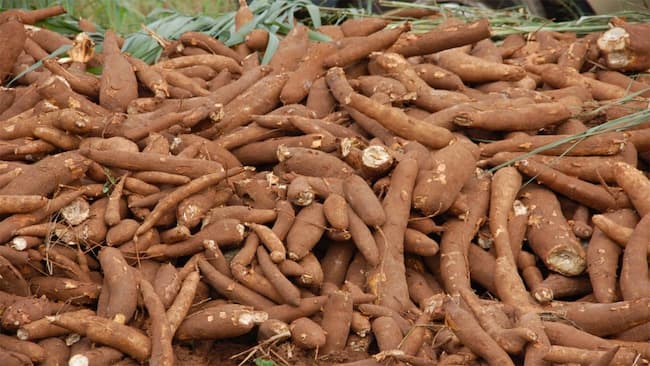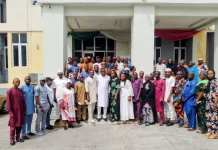In an effort to increase output in cassava production in Nigeria, the federal government disclosed plans to address the issue through the use of technology.
This development was disclosed by the Director of the Federal Department of Agriculture, Karima Babangida while speaking at a workshop aimed at addressing the gap in cassava production in Nigeria.
Babangida said that the country leads global cassava production despite its low production output.
She also noted that the encouragement of youth will create an increase in the production of cassava, leading to high output.
Babangida said, “This is coupled with encouraging youth and gender empowerment activities that will not only increase productivity and income but also offer more economic opportunities to farmers in the cassava value chain.
“Accordingly, this will facilitate the creation of sustainable cassava planting materials production system; provide yield productivity technologies, ensure good agronomic practices, empowerment of youth and women in production, access to information using necessary digital tools to create competitiveness and profitability of Cassava enterprise for smallholder farmers.
“In the end, the value chain will be more efficient in dissemination and adoption of new improved productivity and raise incomes of cassava growers and seed entrepreneurs in the cassava industry.”
READ ALSO: NDIC Targets Growing Depositors’ Fund Above ₦2 Trillion
She noted other factors that could spur improvement in cassava production including seed tracker and other digital tools.
“Also, the Cassava seed system; use of smart agriculture (AKILIMO) application, seed tracker and other digital tools developed by researchers at the international institute have good potentials to improve cassava productivity,” she explained.
“It is in an effort to intensify and out scale these tools to farmers in different states and communities in Nigeria that underscores the essence of this workshop.
“The efforts of many international researchers to support and complement the National agricultural research system in Nigeria to generate location-specific technologies to achieve yield gap in cassava production must be appreciated.”













